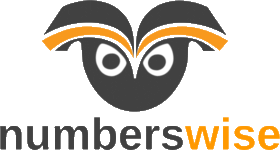All it takes is a little preparation, some good habits and the advice of a qualified tax specialist
By Marc Henein
It’s your job to make sure your business has enough money to survive and thrive – and lowering your tax payable is one way to do that. All it takes is a little preparation, some good habits and the advice of a qualified tax specialist. Use these tips to give your business an advantage by keeping more of your money.
If there’s one thing you’ll dislike about being in business, it’ll be the taxes you have to pay as a business owner. So you’ll want to take advantage of every legal strategy available to help you to minimize your tax payable. Here are some straightforward ways to aid your tax preparation throughout the year.
- Hold onto every receipt
- It’s not up to you to figure out eligible deductions. Simply hang onto your receipts and let an expert review them at year-end when you prepare your tax filing.
- Trust your accountant to determine whether or not a certain travel receipt, client meal, clothing purchase or magazine subscription is a deductible business expense. But they can’t help you if you don’t have the documents. Hang on to everything and let the specialist comment.
- Record what the receipt was for
- Get in the habit of annotating your receipts as you receive them. It will make the bookkeeping and accounting process easier because you’ll have a log.
- Create a filing system
- Those tiny slips of paper end up everywhere: in wallets, purses, briefcases and shoe boxes. Create a simple filing system that works for you — and then use it. Come tax time, these few steps will save lots of headaches and time.
- Separate your business and personal finances
- If you’re just starting out, or working from a home office, it can be tempting to take care of your day-to-day expenses with your personal credit card. But this can complicate potential tax deductions.
- Try to keep your business and personal finances separate. Consider getting a business credit card with your business name on it and opening a separate business bank account.
- Pay taxes and installments on time
- You do all the little things right to reduce the taxes you have to pay and free up more money for your business. So when your installments are due, be sure to pay on time to avoid penalties and interest-rate charges on late amounts due.
- Shelter your income from tax.
- Like employed individuals, there are good reasons why business owners should take advantage of tax-savings vehicles.
- With a Registered Retirement Savings Plan (RSP), you get an upfront tax deduction for your contribution, plus your money compounds tax-free. An RSP is an effective way for business owners to diversify their income sources and shelter that income from tax.
- Another popular vehicle is a Tax-Free Savings Account (TFSA). You don’t get the upfront deduction with a TFSA, but your savings do grow tax-free and you can make withdrawals from your plan at any time without paying tax.
- Hire an accountant.
- To take advantage of all possible business-related expenses, it’s a good idea to engage the services of an accountant.
- Referrals from other business owners can help you find an accountant. Be sure to check references, qualifications and areas of specialization. Do they have experience working with small businesses? Are you comfortable with them? Do they seem to grasp the challenges and opportunities facing your business and its industry?
- Take your deductions.
- Are you taking advantage of all available small business tax deductions? If you’re about to file your taxes, some of these may be items that you prepare for next year. Here are some key deductions to keep in mind:
- Association dues/memberships.
- Magazine or periodical subscriptions related to your business.
- Interest costs on business loans.
- Business insurance (on contents, machinery and equipment).
- Office supplies used to provide your services or goods.
- Vehicle expenses (if used in business), including fuel, insurance, maintenance.
- Travel expenses for earning business income.
- Legal and accounting fees.
These are just some of the deductions you might be entitled to. If you work from home, you are also allowed to deduct a portion of all related home expenses, including utilities, maintenance and insurance. Again, your accountant can help ensure that you are taking advantage of all available business deductions.
Marc Henein is a Senior Wealth Advisor for Scotia Wealth Management. Marc Henein joined ScotiaMcLeod in 2004. Working in partnership with the client’s tax and legal professionals, Marc manages portfolios focused on capital preservation and tax efficient income generation. In some of Marc’s spare time he writes Investment and Financial Planning related articles for the Globe & Mail to share some of his knowledge which has helped many Canadians with their Wealth Management. Marc graduated from Wilfrid Laurier University and has stayed involved as President of the Wilfrid Laurier University’s Alumni Association. He has achieved some of the highest designations within the Investment and Financial Planning Industry. He has obtained Chartered Financial Planner (CFP) designation, is a Fellow of the Canadian Securities Institute (FCSI) and the Chartered Professional (Ch.P.) Strategic Wealth designation. Marc can be reached at 905.896.6452 or marc.henein@scotiawealth.com or www.marchenein.ca
NumbersWise is proud to be a supporter of Mr. Henein.
